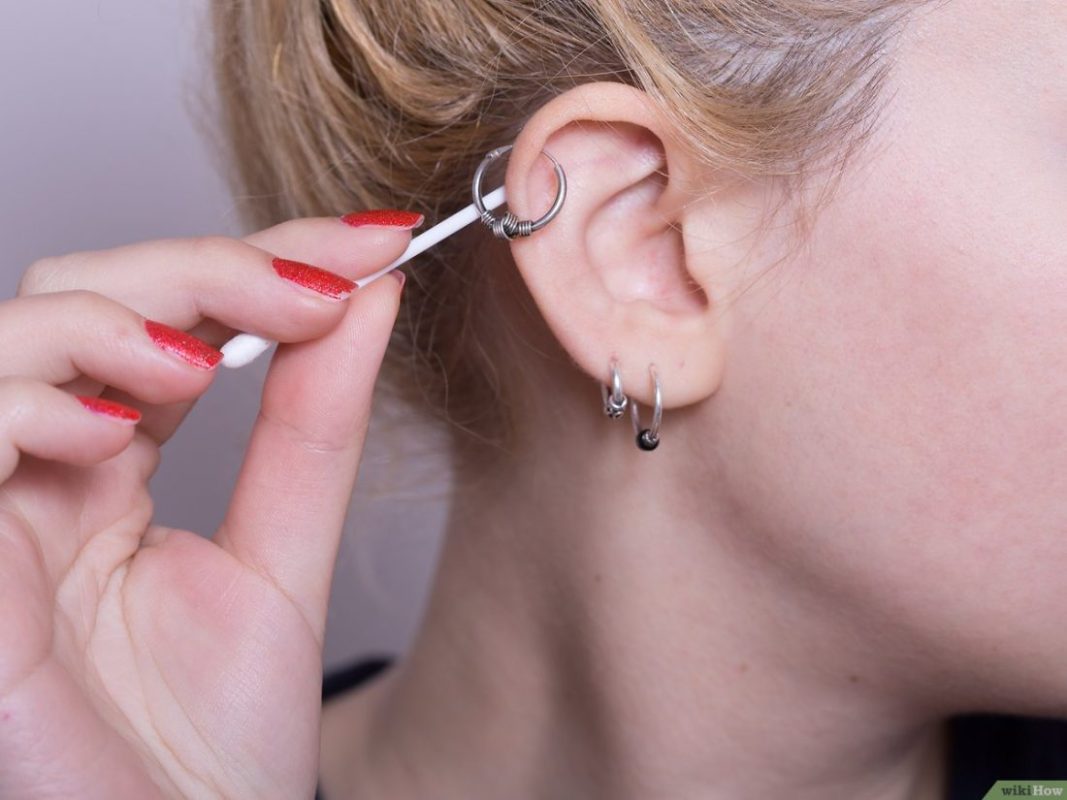
How to clean a piercing?
Contents:
There are few things more worthy of a piercing than improper piercing care. One of the main reasons why people neglect piercing cleaning is the lack of education of the piercers. That's why our piercers always provide a follow-up care plan and instructions on how to clean your piercing.
Even with the right knowledge, sometimes care fades into the background. We've all been there, the first few days of piercing care is a top priority. But as the initial excitement wears off, it starts to feel more like a routine. Despite this, proper postoperative care is important throughout the healing period.
Regular cleaning isn't just for preventing infections. This helps your piercing heal faster and properly so you can look the way you want. In addition, it minimizes discomfort during the healing process.
Here's what you need to know to properly clean your piercing:
How to clean a piercing
Wash your hands!
The first step in cleaning a piercing is to wash your hands. Sounds simple, and it is. But this is one of the most common mistakes people make.
Even if your hands look clean, there may be bacteria on them that will transfer them to the piercing. This may lead to infection or irritation. Most bacteria are effectively removed by hand washing with warm water and soap.
Soap cleaning
Once a day, you should clean the piercing with a mild soap. Soap containing ingredient triclosan should be avoided. We recommend PurSan, a medical grade antimicrobial soap specially formulated for piercings. You can also buy clear, unscented glycerin soap at the pharmacy.
Gently apply a small amount of soap to the inlet and outlet of the piercing and clean all visible parts of the jewelry. Do not push or move jewelry.
Thoroughly rinse off all soap and residue after 30 seconds of cleaning. Air dry or pat gently with paper towels. Avoid cloths and reusable towels as they can carry bacteria.
In addition to scrubbing with soap, you should use daily salt baths to improve healing.
Use a saline solution
You should use salt baths once or twice a day. In addition to cleaning the piercing, it helps relieve swelling or discomfort. You can make your own saline solution, but it's important to follow the instructions correctly.
Preparation:
- 1 cup boiled or distilled warm water
- ¼ teaspoon non-iodized sea salt
- Clean paper towel or gauze pad
Instructions for use
- Dissolve sea salt in water.
- If you're using boiled water, let it cool down so it doesn't irritate or burn your skin (although you still want it to be warm).
- Moisten a gauze pad with the solution.
- Gently place the pad on both sides of the piercing.
- Leave in place for 5-10 minutes.
- Rinse thoroughly with warm water to remove salt.
- Dispose of the remaining saline solution.
Notes:
- Table salt is not an adequate substitute for sea salt.
- The use of boiled or distilled water is important to prevent the transfer of bacteria during soaking.
- Stick to the salt ratio. Using too much sea salt can cause irritation.
- Prepackaged sterile saline solutions can be used for soaking. We recommend NailMed. If you buy a saline solution from a pharmacy, make sure that the only ingredients are sodium chloride and water and that it is labeled as washing wounds with saline.
How often should a piercing be cleaned?
Cleaning with soap should be done once a day, and with salt baths once or twice a day. As important as it is to clean your piercing, don't overdo it.
Cleaning a piercing means touching the piercing, and too much touching will cause irritation. This is especially true during the first two weeks of healing.
Some piercers even recommend sea salt sprays to avoid touching the piercing while cleaning. However, the topic has some discussion. Some say sprays should be used in addition to saline baths, while others advise avoiding them entirely. Ask your piercer for recommendations.
Piercing cleaners to avoid
If you can call it, someone tried to use it to clean a piercing. Almost everything has been tried, and we have come to the conclusion that simple is best. In general, the more ingredients in a product, the more likely it is to contain an irritant. Some common piercing cleaners that you should avoid include:
- Medical alcohol
- hydrogen peroxide
- Antibacterial soap
These products seem like a good idea at first glance. After all, they kill any harmful bacteria. But they are indiscriminate, they also kill the good bacteria your piercing needs to heal properly. In addition, these are harsh products that can damage or irritate the sensitive area in and around a fresh piercing.
Ask the Piercing Experts
When you get your piercing done at our Newmarket studio, our specialists will provide you with a clear plan and instructions for cleaning and caring for your piercing. They will be happy to ask any questions you may have during the piercing or after care.
Piercing studios near you
Need an experienced piercer in Mississauga?
Working with an experienced piercer can make a big difference when it comes to your piercing experience. If you are in
Mississauga, Ontario and have any questions about ear piercings, body piercings or jewelry, call us or stop by our piercing studio today. We would like to help you understand what to expect and help you choose the right option.
Leave a Reply